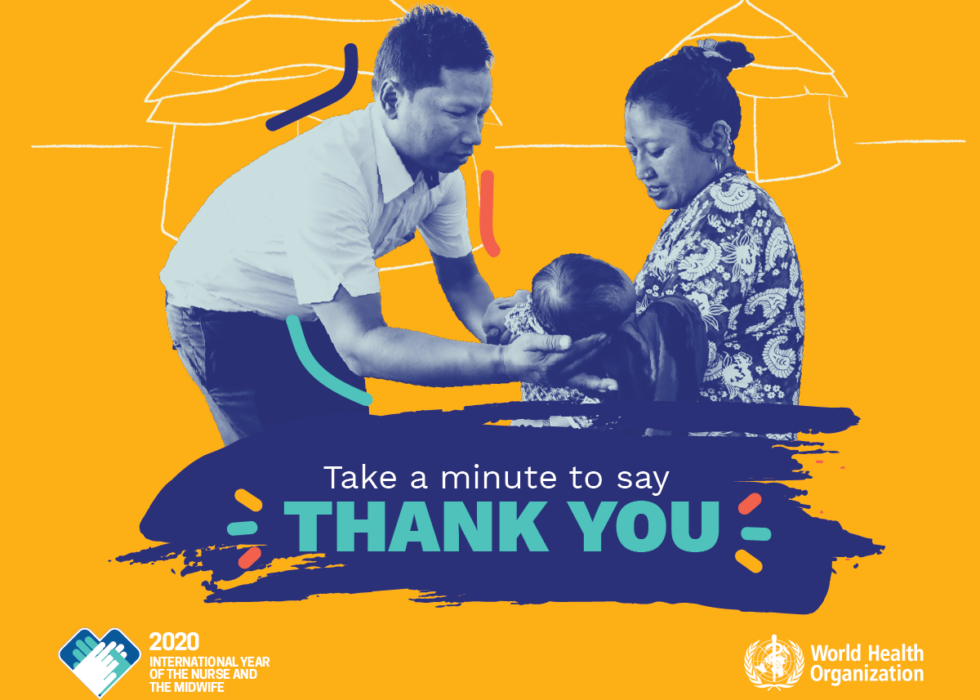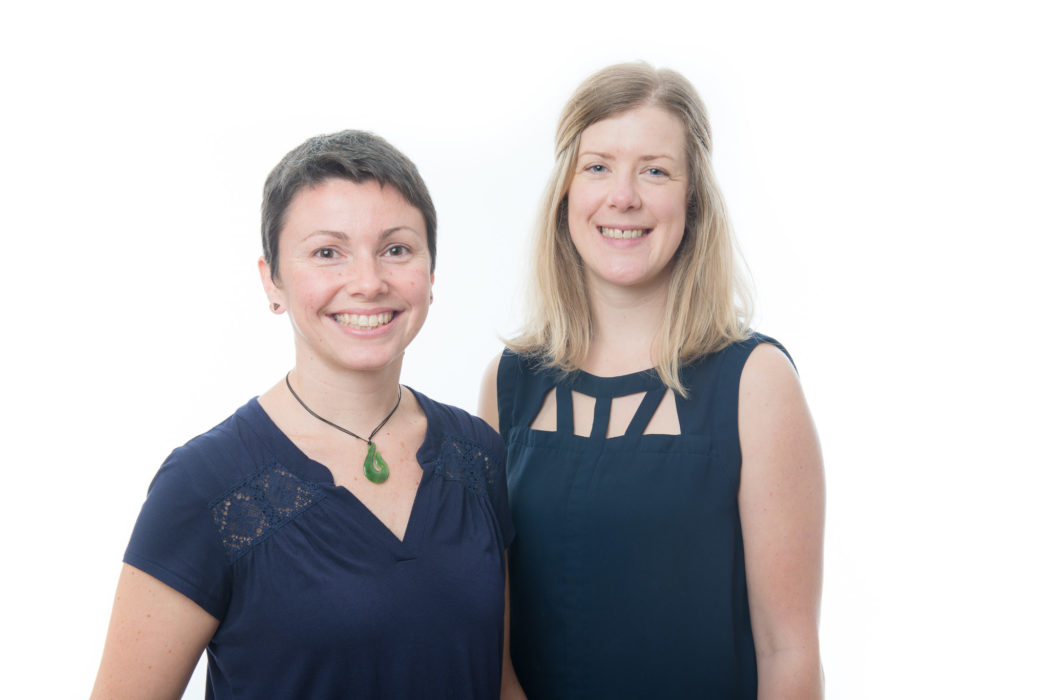Thriving Despite Occupational Disruption: How OT Helps During COVID-19
COVID-19 has launched the world into a major transition. Everything we do, and how we do it, has changed. This is a period of occupational disruption and occupational therapists can help. This is what we do.
Occupational Therapy
OTs understand that occupational disruption can be overwhelming, confusing and exhausting. It is normal to feel anger, denial and sadness. But the practical, client-centred approach to OT helps people get a sense of normalcy, routine and well-being; we help people create a new, healthy normal.
OT Works! Approach
We continue to provide quality care to our clients and know its importance while facing occupational disruption during COVID-19. Especially for those who were getting clinic-based services and find themselves without, or with very little, care.
We embrace innovation. We have adapted the way we give care so that it continues to be meaningful and helpful, despite social restrictions. We have:
- Tailored our services to optimize video, phone and text communications (via telehealth and online care)
- Created new, cost-effective, flexible ways to deliver services that weren’t possible in person
- Developed protocols to safely provide in-person care for urgent situations
- Enabled creative collaboration for our therapists, so clients are served best
We protect your privacy and security. We are using Microsoft Teams for video sessions, which is a secure and private platform approved for telehealth use by the College of Occupational Therapists in BC (COTBC) and funders including WorkSafe BC and ICBC.
Tips to Manage Better
Loneliness and inactivity contribute to illness. Our OTs help clients stay connected and maintain a balance of productivity and rest. Here are some tips that our OTs have for you!
- Establish a daily and weekly routine. Having set routines allows us to establish a sense of control over our own lives and even more so during transitions.
- Stay connected. Reach out to friends and access resources and healthcare professionals when you need them.
- Practise good sleep hygiene. A proper sleep schedule encourages increased energy and endurance during the day. Stick to a consistent bedtime and wake-up schedule and avoid light or other stimulating substances (e.g. caffeine, alcohol, nicotine) before going to bed.
- Explore new hobbies and practise existing skills. Learning a new skill or hobby is a great way to defeat boredom and motivate yourself further.
- Be kind to yourself. Practise self-care. Reward yourself for completing tasks and achieving goals. Take a break when you need to. When feelings intensify, breathe deeply and give yourself some self-compassion.
These healthy strategies help us manage the current situation, as well as when the pandemic has passed, and during any other difficult transitions we face.
Lives are changing but you can recover from this occupational disruption. Our OTs are here when you need us.
Contact Us
All of our therapists at OT Works! are certified with the College of Occupational Therapists of British Columbia (COTBC) and have additional training in areas such as mental health, brain injury rehabilitation, home safety and chronic pain.
If you or someone you know could benefit from occupational therapy during this coronavirus outbreak, contact us today! We are happy to answer any questions you may have.
E-mail: info@ot-works.com
Phone: 604.696.1066 ext 1000
Related Articles
- “Staying Happy While Staying Home: Lessons from Occupational Therapy” (Vancouver Sun)
- “Ten Tips for Sleeping Well During Troubled Times” (First Nations Health Authority)
- “Our mental health won’t be same after the coronavirus pandemic, experts say” (Global News)
- “3 Tips to Reduce Pandemic-Induced Anxiety” (CBC Radio)
Mental Health Week 2020: #GetReal
OT Works! is proud to acknowledge Mental Health Week. We would like to #GetReal and celebrate the efforts of all the healthcare professionals and people who are providing support during this COVID-19 period of occupational disruption.
Our occupational therapists provide clients with recommendations to manage their mental health and thrive. They can help you do what you need and want to do while working with current physical distancing measures in place in British Columbia.
Together, we can get through this period of occupational disruption, encourage healthy coping strategies, and end the stigma around mental health.
Learn More
Canadian Mental Health Association
World Health Day: Thank You Nurses and Midwives
April 7, 2020 is World Health Day. OT Works! is proud to celebrate the work of nurses and midwives in British Columbia and around the world.
Nurses and midwives are at the forefront of the COVID-19 response. They provide high quality, respectful treatment and care. We are grateful for their effort in keeping the world healthy and will continue to support their work in our own roles as allied healthcare providers.
For more information, visit World Health Day 2020.
Telehealth
When clients can access few other services, occupational therapy via telehealth is a vital link to wellness.
About Telehealth
Telehealth refers to using electronic communications to manage a client’s health and wellbeing. OT Works! is delivering telehealth services during the COVID-19 outbreak. Care by telehealth is therapy that is:
- Provided via phone, email, text messages or video
- Live, private and confidential
- Guided by the College of Occupational Therapists of BC (COTBC) and the Provincial Health Services Agency (PHSA)
How OT can help with Telehealth
Telehealth allows clients to safely receive the prompt care they need while social distancing is required. Through telehealth, our therapists help clients:
- Maintain or improve workplace tolerances
- Develop a daily structure that simulates their typical (work) day
- Create healthy routines
- Increase resiliency
- Deliver health education
- Promote connection with the workplace and decrease isolation
OT Works! Telehealth Approach
OT Works! therapists provide a creative healthcare service that develops client-centered solutions that are:
- Cost Effective
- Customized to optimize outcomes (including remote session length and frequency)
- Tailored towards cognitive and emotional gains
- Focused on the long-term goals, including Return to Work
- Provided with integrity and therapeutic value
Services Considerations
The following services are difficult to deliver remotely, yet we have solutions to help:
- Home environment – possible with video technology
- Objective assessments of range of motion and strength – possible with video technology
- Functional assessments (e.g. transfers, stairs, community access) – inferred from client reports, questionnaires, camera observations and medical documentation
- Wheelchair or home safety assessment – if urgent, in-person assessments can be considered after completing a client risk assessment and while using personal protective equipment.
Get Started
All of our therapists at OT Works! are certified with the College of Occupational Therapists of British Columbia (COTBC) and have additional training in areas such as mental health, brain injury rehabilitation, home safety and chronic pain.
We’re here for you when you need us.
E-mail: info@ot-works.com
Phone: 604.696.1066 ext 1000
OT Works! is OPEN
OT Works! continues to serve clients and customers during the COVID-19 outbreak. We believe occupational therapy is essential to maintaining the health and wellbeing of the public. OT Works! is adapting to better support everyone – our clients, customers, therapists, staff and our communities – in the most responsible manner possible.
Telehealth
OT Works! is enabled by telehealth. Our occupational therapists can provide telehealth services by phone, email, text messages and video. Telehealth can allow live, confidential and safe interactions with an occupational therapist during times social distancing. We have developed protocols and plans that follow guidelines by the College of Occupational Therapists of BC (COTBC) and the Provincial Health Services Agency (PHSA). Our goal is to provide care through telehealth that is meaningful and appropriate.
We will continue to provide in-person home visits on an urgent basis.
Benefits of Telehealth
Telehealth is a vital link to wellness when clients have limited or no access other in-person services. For many of our clients, telehealth is the only service available to them after other health providers and rehab team members have closed their doors. Through telehealth, our OTs can provide clients with prompt and personalized care while maintaining social distancing.
Telehealth can help clients by:
- Maintain or improve workplace tolerances
- Develop a daily structure that simulates their typical (work) day
- Create healthy routines
- Increase resiliency
- Deliver health education
- Promote connection with the workplace and decrease isolation
Occupational therapy is client-centered. Our clients’ telehealth treatment plans are specific to individual needs and goals. While some rehab goals may not be accessible during times of social isolation (eg. return-to-work), telehealth maintains clients’ readiness for rehab upon return to in-person sessions.
Occupational therapists are creative and adaptive. With telehealth, our therapists are able to adjust the frequency and duration of sessions to provide appropriate and effective care during our current situation.
Telehealth allows us all to socially distance ourselves and prevent the spread of disease while still connecting, progressing on goals and maintaining well-being.
Service Areas
OT Works! continues to serve the following areas :
- Metro Vancouver
- Fraser Valley
- Sea-to-Sky (Squamish, Whistler, Pemberton)
- Vancouver Island
With telehealth, our occupational therapists can also assist clients outside of these geographic areas. Contact us to learn more.
Contact Us
All of our therapists at OT Works! are certified with the College of Occupational Therapists of British Columbia (COTBC) and have additional training in areas such as mental health, brain injury rehabilitation, home safety and chronic pain.
We’re here for you when you need us.
E-mail: info@ot-works.com
Phone: 604.696.1066 ext 1000
Meet Mathilde Bleuze & Bronwyn Cormack: Occupational Therapists
Welcome Mathilde Bleuze and Bronwyn Cormack to the OT Works! team. They provide community OT services for individuals with musculoskeletal/orthopaedic injuries, chronic pain, mental health, concussion/traumatic brain injuries and mixed diagnoses. They guide clients in managing their daily activities at home, work and in the community in order to foster increased independence.
Mathilde enjoys thinking outside of the box and supporting clients in their own environments. Originally an OT in France, she has a wealth of experience particularly in return-to-work planning, home safety and seating and mobility. Mathilde serves clients on Vancouver Island, particularly in the Comox Valley region.
Bronwyn finds that private practice allows for a dynamic work environment. She enjoys learning about the different roles people have in their communities. She provides workplace assessments, return-to-work planning and activation, among other services. Bronwyn serves clients in the Sea-to-Sky region, primarily North Vancouver to Whistler.
Like all of our therapists, Mathilde and Bronwyn are full registrants and in good standing with the College of Occupational Therapists of British Columbia (COTBC).
Get started with an OT
If you or someone you know could benefit from working with an occupational therapist, contact us today!
Email: referrals@ot-works.com
Phone: 604.696.1066 ext. 1000.
12 Science-Based Benefits of Meditation
Occupational therapy promotes increased independence while carrying out tasks and activities. Meditation is one way clients can train their minds to focus on what they can and will do.
Check out Healthline’s article here.
23 Healthy New Year’s Resolutions You Can Actually Keep
Develop healthier habits and reduce stress by trying Healthline’s goals. Make sure that you are realistic about what your goal entails so that you can effectively maintain the habit.
When choosing one of these goals, remember to make sure you plan them the SMART way.
- Specific – Know exactly what you want to accomplish.
- Measurable – Track your progress.
- Achievable – Outline the steps you will take to reach your goal.
- Relevant – Ensure the goal fits in with your current and upcoming needs.
- Time-Based – Choose a target completion date and set up check-ins along the way.
Get an OT’s Help
All of our OTs use goal-planning to develop effective and personalized treatment plans for their clients. Our OTs are university-trained and certified by the College of Occupational Therapists of British Columbia (COTBC). Many of our OTs have additional training in physical OT treatment, mental health, and goal-planning.
Contact us today if you or someone you know could benefit from goal-planning with an OT.
Email: referrals@ot-works.com
Phone: 604.696.1066 ext. 1000
A Quick Guide to Occupational Therapy Services: After A Motor Vehicle Accident
Occupational Therapy For Your ICBC Claim
After a motor vehicle accident, occupational therapy helps clients implement and maintain a sense of independence and balance in life. Occupational therapists focus on how clients participate in daily activities relative to their surroundings. They collaborate with their clients to help them function safely and effectively at home, work and in the community. Community OT is flexible and uses individualized, goal-oriented approaches in rehabilitation and health management.
When to Refer or Contact an OT
When an individual is injured in a motor vehicle accident in British Columbia, they are eligible to receive OT services under Part 7 Benefits. Usually ICBC requires a referral from a healthcare practictioner for occupational therapy in order to authorize funding. A doctor may recommend OT services if a client:
- Has not returned to work, school, volunteering or other pre-accident roles.
- Is struggling to care for themselves, their family or their home.
- Is still recovering slowly or not at all, despite other treatments.
Assessment
Once we receive a referral, we confirm with ICBC to ensure that funding is available. An OT Works! therapist can then reach out to the client to set up an initial assessment. During the first appointment, the OT will:
- Gain an understanding of the client’s pre-injury status.
- Observe the client doing functional tasks in their real environment(s), as well as standardized testing.
- Discuss a collaborative plan for treatment (if needed).
The therapist then provides a comprehensive report to ICBC and other healthcare providers involved in the client’s care. If necessary, further OT treatment may be recommended.
Throughout the process, OT Works! therapists help our clients be safe and comfortable. We encourage our clients to ask questions and take breaks when needed.
Hospital Discharge Program
When ICBC requests an OT assessment through the Hospital Discharge Program, occupational therapists help create a safe and timely transition to home for clients who have been hospitalized after their accident. Occupational therapists assess the need for adaptive equipment, home modifications or home support services such as cleaning services or a care aide’s support.
Longer-Term Care
OT Works! also helps ICBC clients who have not been hospitalized or who have been recovering for a longer period of time by the time of the referral. The therapist must determine if continuous OT treatment is necessary to enable a successful recovery. The assessment usually takes place at a client’s home or their workplace (e.g. job site visits, ergo assessments).
Treatment
If on-going occupational therapy is determined to be beneficial, then an OT will continue with the client and support their recovery with goal planning, regular appointments and support. Rehabilitation plans are customized for the client’s individual needs and goals. Here are some examples of the services our clients receive and the activities involved:
- Gradual Return-to-Work Planning and Monitoring helps people ease back into their work roles after time-off due to injuries. OTs can provide on- and off-site coaching through education, strategies and coping tools. They organize appropriate assistive and ergonomic equipment and advocate for return to work options with the client’s employer.
- Adaptive Equipment and Mobility Aids are put in place to ensure safety at home and in the community. Examples include adding a ramp or stair lift to navigate multilevel homes or assessing the safety and comfort of wheelchairs for those requiring assistance moving around.
- Exposure Therapy addresses a client’s anxiety, fear and discomfort so that they can actively engage in their community and life again. It is a gradual, step-by-step process that involves safe, accompanied exposure to locations or situations that trigger a client’s anxiety.
- Concussion Management helps people address the symptoms associated with impacts to the head. Occupational therapists provide education about what a typical recovery looks like. They help clients stay active after a concussion without overdoing it and determine strategies to work around the challenges they face.
- The Progressive Goal Attainment Program is an evidence-based program that reduces the barriers of disability by specifically targeting the psychological and social obstacles clients face. Goals are specific, measurable, achievable, realistic & relevant and time-based. We have several therapists that are certified to provide PGAP services.
Occupational therapists also provide a number of other services. Learn more here.
Case Studies: Successful Return to Work & Life
Theses three real-life case studies show the difference occupational therapy can make at various times in the recovery process after a motor-vehicle accident.
Get Started with an OT
All of our therapists at OT Works! are certified with the College of Occupational Therapists of British Columbia (COTBC) and have additional training in areas such as mental health, brain injury rehabilitation, home safety and chronic pain.
If you or someone you know could benefit from occupational therapy after a motor vehicle accident, contact us today! We can help you acquire funding from ICBC and answer any questions you may have.
Email: referrals@ot-works.com
Phone: 604.696.1066 ext. 1000.
ICBC Webpage: https://www.ot-works.com/services/ot-and-icbc-recovery/
Concussion Management: How Occupational Therapy Makes a Difference
Increased awareness about concussions, including expanding research, demonstrates the need for occupational therapy in concussion management. Concussions result in functional changes that can affect a person’s participation in social, work or household activities. As experts in function, OTs are well-equipped to assist clients with concussions. OT Works! regularly helps insurers at ICBC and WorkSafe BC, as well as other third-party insurance companies, to assist clients as they recover.
What is a concussion?
A concussion can result when impact to the head, or a whiplash movement, causes the brain to move quickly and abruptly. There are a variety of symptoms that can occur including:
- Physical symptoms: headache, nausea, dizziness
- Cognitive symptoms: decreased attention, slowed response time, memory difficulties
- Emotional/behavioural symptoms: irritability, sadness, anxiety
- Sleep-related: increased sleep, difficulty falling asleep, difficulty staying asleep
There is increasing evidence against the notion that prolonged rest (after the 24-48 hour mark) improves one’s symptoms. In fact, it is important the clients start to gradually return to their activities within the first few days post-injury. The activity level should not bring on or worsen symptoms.
How can an OT help after a concussion?
Occupational therapists support their clients in returning to daily activities gradually and safely. They provide education regarding concussions and explain what a typical recovery looks like. Experiencing a concussion may be alarming to a person with a head injury. OTs can help their clients understand their symptoms and what they can do about them. OTs often review what is can be expected in recovery and provide strategies to return to the things the cleint wants to do.
OTs recognize the unique potential each client possesses. Together, the OT and client can develop an individualized rehabilitation plan. They address the individual client’s concerns and personal goals. For instance, some clients may require gradual exposure to busier environments over a longer period of time if they experience light or sound sensitivity.
OTs also help their clients who have concussions by:
- Reviewing strategies to be active, without overdoing it: energy conservation, pacing and relaxation techniques
- Determining ways to work around or with challenges, ultimately to enable a successful return to work
- Liaising with other healthcare providers and insurers to ensure a timely and thorough rehabilitation
Get started with an OT for concussion management
All of our therapists at OT Works! are certified with the College of Occupational Therapists of British Columbia (COTBC) and have additional training in concussion management. Our approach is based on current concussion science and best practice.
If you or someone you know could benefit from concussion management with an occupational therapist, contact us today!
Email: referrals@ot-works.com
Phone: 604.696.1066 ext. 1000.











